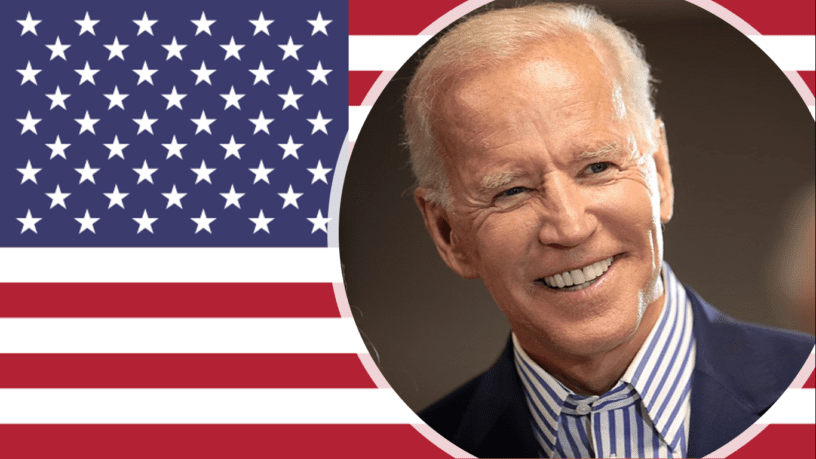By Vish Gain for AMLi
Now that Joe Biden has been declared president-elect of the United States and Donald Trump has reluctantly agreed to a transition in government, business and compliance professionals across the world are eager to know what this could mean for the many global sanctions programmes that have accumulated over the past four years.
Will Biden undo everything Trump did? What impact will the composition of Congress have on foreign policy? And what are the priorities of the incoming administration?
These are some of the questions that were discussed by industry experts in an ACAMS US Election Special webinar on Tuesday. Here are a few key takeaways on what lies ahead.
What’s on Biden’s mind?
The last four years of Trump’s administration have seen a significant rise in the number of global sanctions, including on China, Russia and Iran. With less than two months to go for Biden’s inauguration, experts say his new cabinet seems to a seasoned, pro-diplomacy cohort with extensive experience in foreign policy.
“We’re coming out of an administration that wanted to rip bandaids off perennial foreign policy problems in a sort of a quick fix that leaned on sanctions largely as a crutch,” said Julia Friedlander of the GeoEconomics Center, Atlantic Council.
“A good technocrat would know you can’t throw away everything that was done before. The question they ask is: How do I deal with the cards I’ve been currently dealt with?”
John Smith, former director of the Office of Foreign Assets Control, said that the Trump administration will do everything it can to implement in stone the foreign policy decisions it has made, including sanctions, with China and Russia at the top of the agenda.
While the new president will have a range of executive powers that guide US foreign policy, Congress is a force to be reckoned with. Even if Biden wants to overhaul the Trump administration’s sanctions programmes, the composition of the senate may play a role in his extent of power.
While Congress has always played a role in sanctions because it was entrusted by the constitution to regulate commerce with foreign powers, the power has traditionally rested with the executive branch.
“Congress may play more of a back seat to the administration when it comes to sanctions agenda,” said Daniel Tannebaum, a partner at Oliver Wyman.
“Sanctions are one of the few issues that reach bipartisan support.”
China, Russia and Iran
US-China relations have significantly deteriorated over the past few years, with multiple US sanctions being placed on China for human rights abuses in Xinjiang and the banning of apps such as TikTok and WeChat. Likewise, China has responded with a host of sanctions on the US, including on politicians Marco Rubio and Ted Cruz for their comments on Uighur sanctions and the Hong Kong Autonomy Act.
While Donald Trump’s ‘America First’ isolationist approach may have encouraged the deteriorating relations, Biden’s stress on international diplomacy may undo some of that damage.
“The cat’s out of the bag with respect to Biden’s stance: he will be more diplomatic and lift some of the sanctions,” said Tannebaum. “Biden will focus leveraging the foundations that Trump put in place.
Referring to the new executive order on Chinese military companies due in January, Smith said: “Some of the sanctions can be difficult for the next administration to undo. In this instance, the control of the Senate is important because it can help or tweak a President depending on who is in the majority.”
On the Russian front, the US has strongly opposed the construction of Nord Stream 2, a system of offshore natural gas pipelines from Russia to Germany. Once completed, the pipeline may increase Russia’s influence in the region and offer an alternative source of gas to the EU, as opposed to US shale gas.
“Biden will try to work as closely as possible with European allies on sanction programmes,” said Smith. “Russia will continue to be an irritant between the two countries, and Nord Stream 2 will continue to be a major issue.”
He added that another task for Biden will be to identify the level of Russian influence on US elections, even though this election was deemed to be largely secure.
After Trump’s Muslim-ban and pulling out of the Iran nuclear deal in 2017, relations with the middle-eastern country have hit rock bottom. Subsequent US sanctions on Iran have crippled the country’s economy and diplomatic talks have virtually stalled since.
“Even if Biden said we’re going to re-enter the deal, we’d get another round of Congressional legislation that made it hard to keep the deal in place in the first place,” said Friedlander.
“The main objective is to see if we can rebuild trust between Tehran and Washington before any sanctions can be altered or lifted.”
Tannebaum wasn’t optimistic on the economic front. After multinationals moved out of Iran following US sanctions, Tannebaum thinks companies will be reluctant to return even if sanctions are lifted.
“Iran expects foreign companies to come back into Iran if the US lifts sanctions, but I wouldn’t bank on that given how quickly companies had to retreat after sanctions as well as the broader money laundering risks,” he said.
“Iran got very little out of the JCPOA that was tangible and lasting. We need to see what will get them to participate again.”
Looking ahead
The cryptocurrency sector has also come under recent scrutiny in the US after Iran unveiled plans to evade sanctions using the channel for imports. The move was made to avoid sanctions placed on Iran’s access to foreign currency.
“I think sanctions on cryptocurrency will continue to evolve. It was discussed under the Obama administration, and then under Trump. This sector is changing quickly and Biden will have to keep an eye out and impose sanctions where it is possible,” said Smith.
“But it’s not always the easiest area to impose sanctions on.”
“Looking ahead, I think what we can expect from the incoming Biden administration is the restoration of diplomacy and a multilateral approach to international sanctions,” said Tannebaum.
“A number of us hope that sanctions will be boring again,” he chuckled.
Share this on:
Follow us on:








